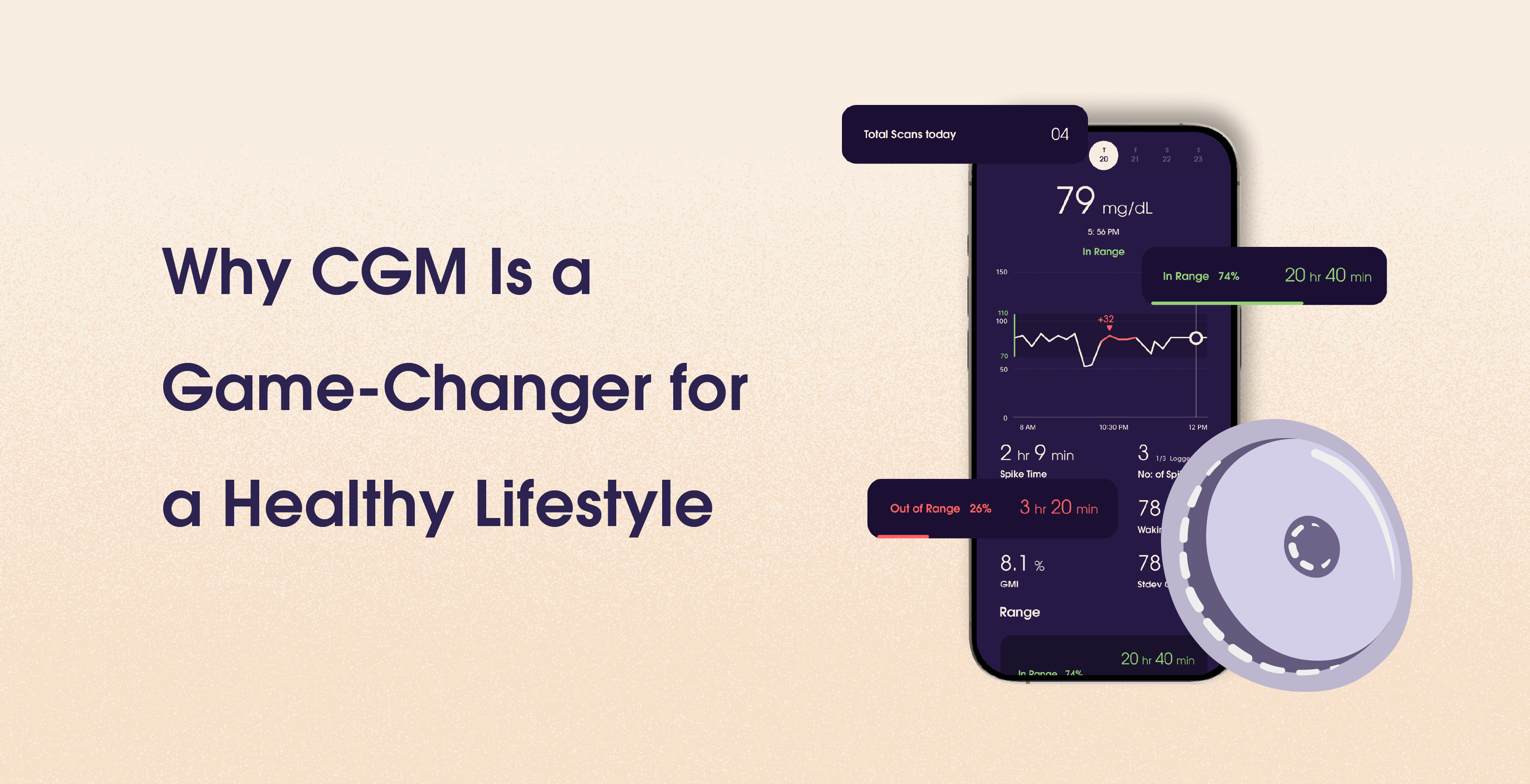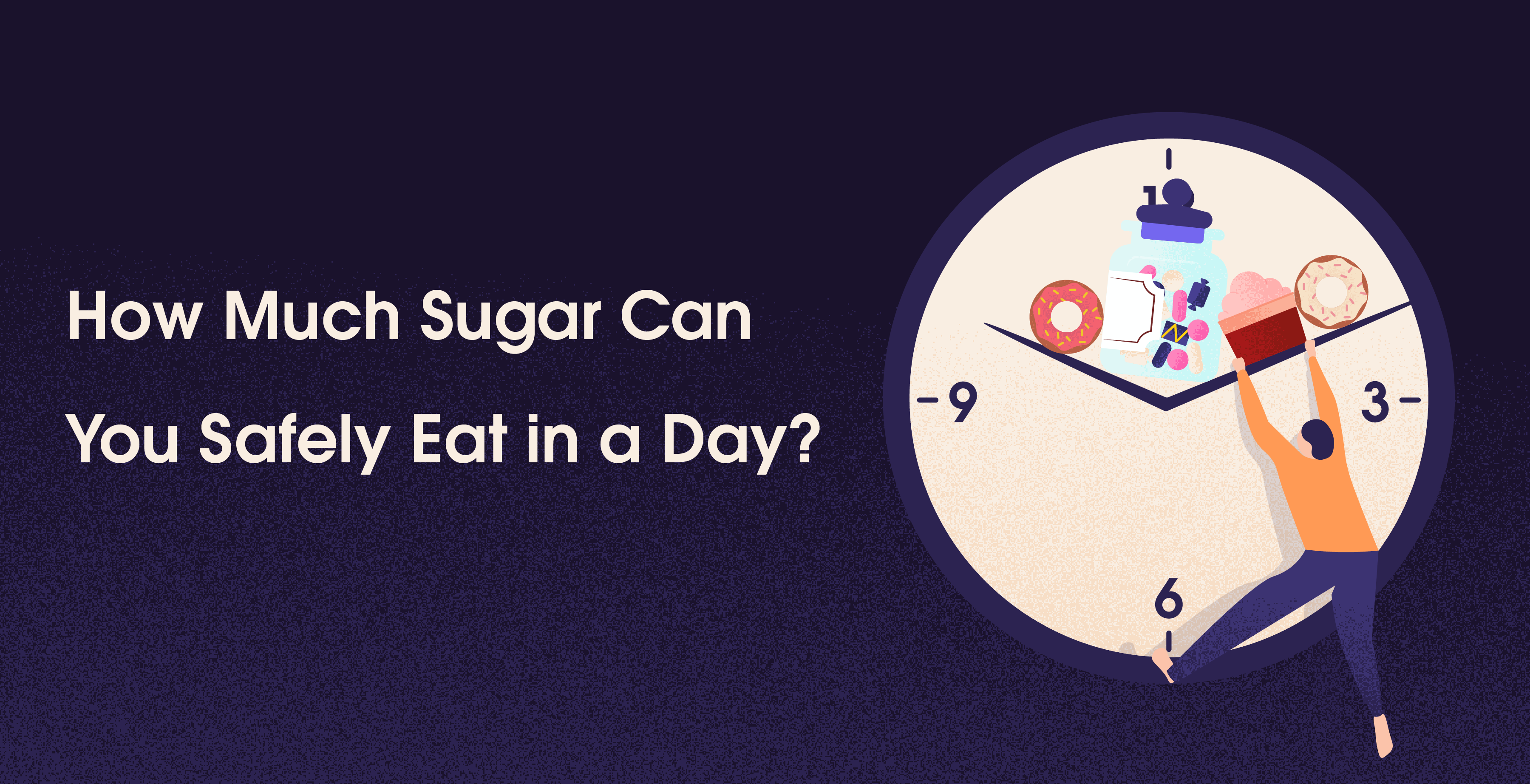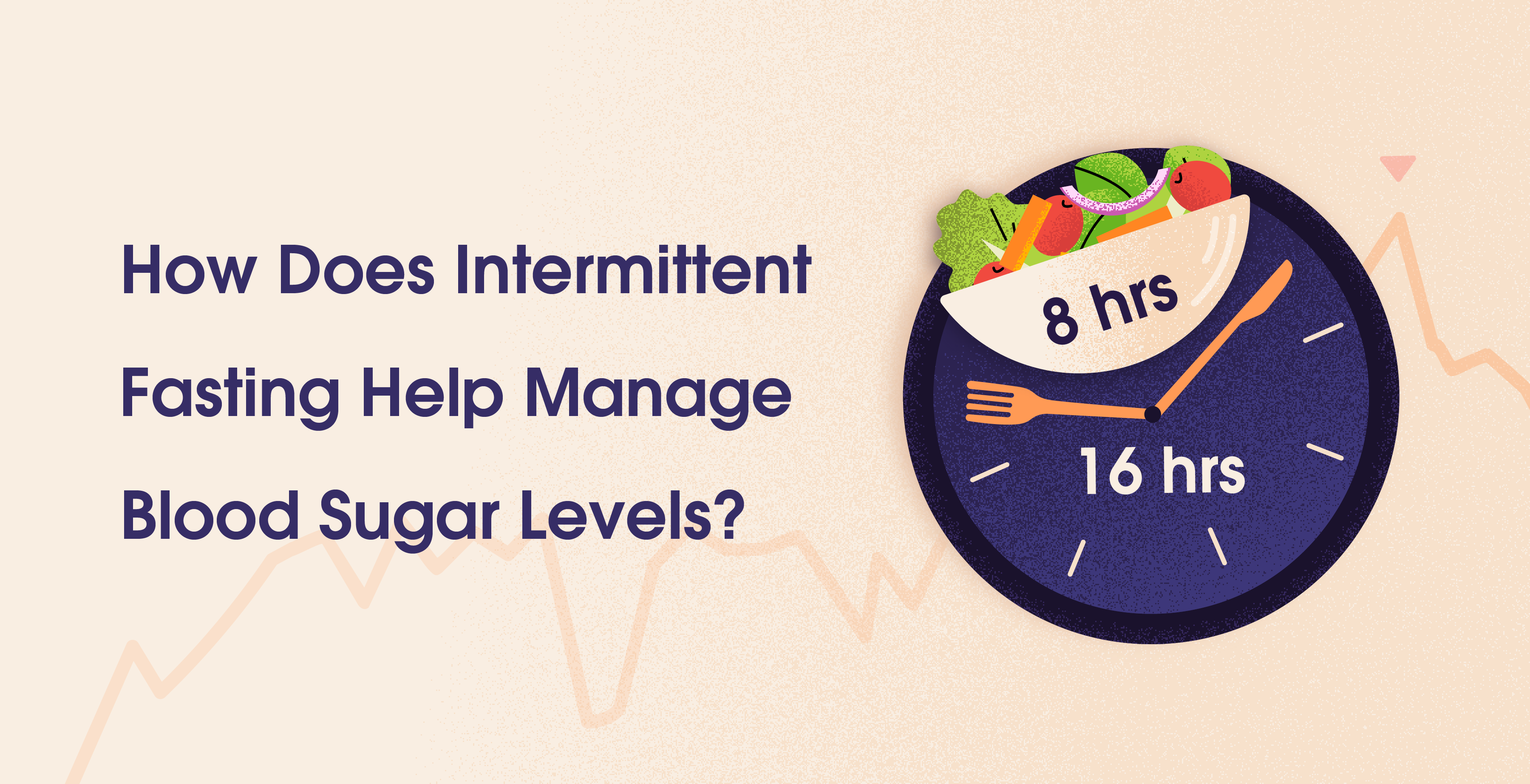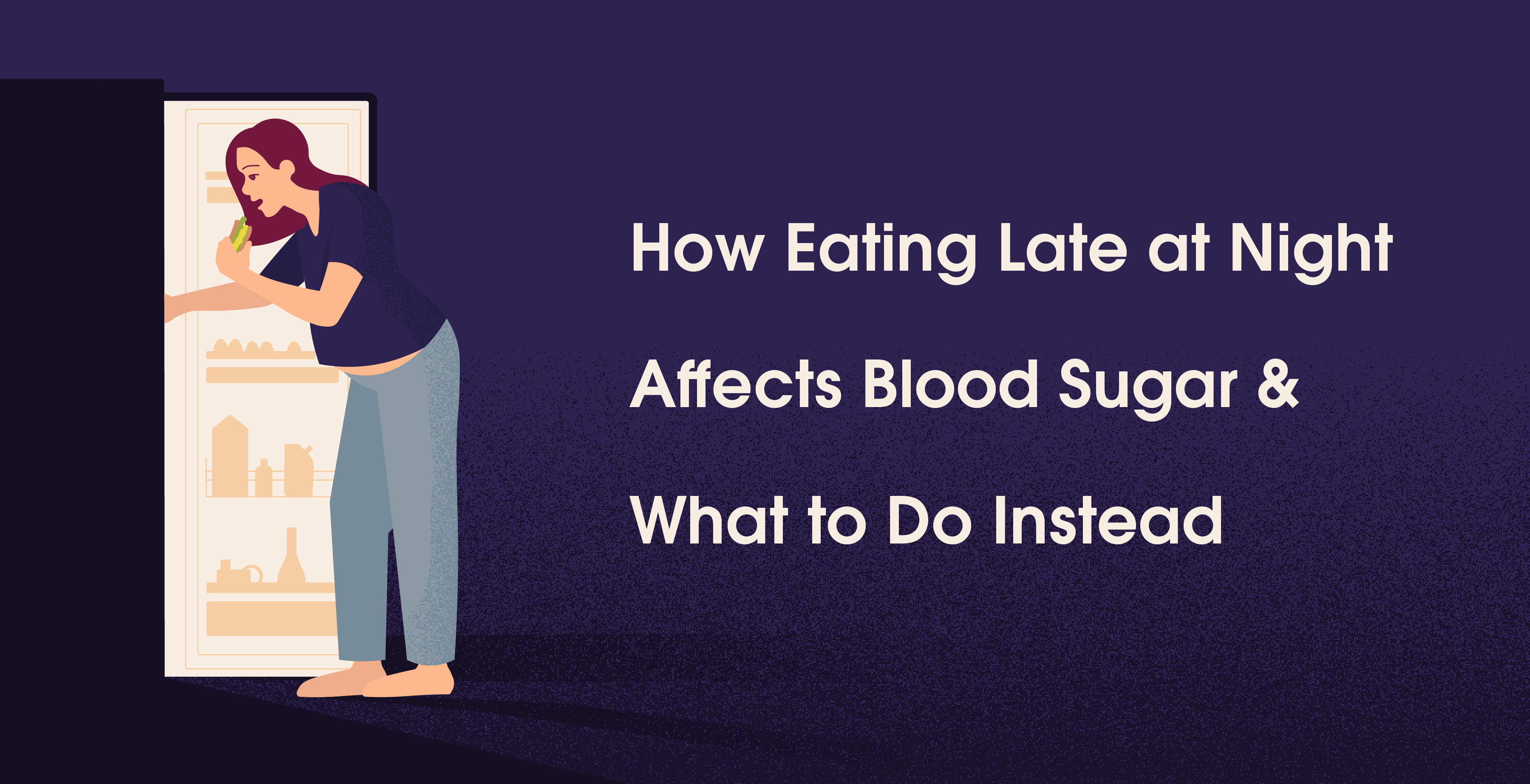How Eating Late at Night Affects Blood Sugar & What to Do Instead
Table Of Contents
We’ve all been there—standing in front of the fridge at midnight, contemplating whether that slice of leftover pizza is worth the guilt. Maybe it's been a long day, or maybe you just crave something sweet while binge-watching your favorite show. Whatever the reason, late-night eating feels almost ritualistic. But here’s the kicker: your blood sugar isn’t exactly a fan of your nocturnal snacking habits.
Highlights
Eating late at night disrupts your body’s natural rhythm, making it harder to process glucose efficiently.
Blood sugar lingers in the bloodstream longer, increasing the risk of insulin resistance and morning glucose spikes.
Late-night snacking is linked to weight gain, sluggish digestion, and higher chances of Type 2 diabetes.
Poor nighttime eating habits can disrupt sleep, leading to increased cravings the next day.
Balanced meals during the day help prevent nighttime hunger and unnecessary cravings.
Setting a kitchen cutoff time and brushing your teeth after dinner can help curb mindless snacking.
Replacing late-night eating with herbal tea, stretching, or a warm shower can break the habit.
If truly hungry, opt for low-impact snacks like nuts, Greek yogurt, or avocado toast.
Prioritizing quality sleep reduces cravings and improves metabolic health.
Cutting out late-night eating can help regulate blood sugar, sustain energy, and improve overall well-being.
The Midnight Munchies vs. Your Metabolism
Your body’s a machine—one that thrives on rhythm. It follows a natural circadian cycle, dictating everything from when you feel sleepy to how your metabolism functions. Eating late at night throws a wrench in the system. During the day, your body is primed to handle food efficiently, but come nightfall, that efficiency takes a nosedive.
Here’s the problem: when you eat late, your body processes glucose (a.k.a. sugar) more sluggishly. Instead of using it for energy, it lingers in your bloodstream longer than it should. Over time, this could lead to insulin resistance—your cells start ignoring insulin’s knock at the door, which means more sugar stays in your blood, leading to higher fasting glucose levels in the morning. Translation? Spikes and crashes that leave you feeling groggy, cranky, and weirdly hungry again.
So, What’s the Real Damage?
Think of late-night snacking like texting your ex—it feels good in the moment, but the long-term effects? Not so great. Regular late-night eating has been linked to weight gain, sluggish digestion, and higher risks of developing Type 2 diabetes. Why? Because your insulin sensitivity naturally dips as the night progresses. Your body isn’t designed to handle heavy meals when it’s winding down for the day, so it stores excess calories as fat rather than burning them for fuel.
And let’s not forget sleep. A high-carb or sugary midnight treat can cause blood sugar spikes, which then trigger a crash—making you wake up in the middle of the night starving. It’s a vicious cycle that messes with both your sleep quality and your hunger hormones, making it even harder to resist cravings the next day.
What to Do Instead? Here’s the Game Plan
Alright, so you get it—late-night snacking is not doing your blood sugar (or waistline) any favors. But let’s be real, sometimes the cravings hit hard. Here’s how to outsmart them:
Eat Balanced Meals During the Day
If you’re starving at midnight, odds are you didn’t eat enough protein, fiber, and healthy fats earlier in the day. Make sure your meals are balanced so you’re not running on empty come nighttime. A plate loaded with lean protein, whole grains, and veggies will keep you fuller for longer and keep those late-night cravings in check.
Close the Kitchen After Dinner
Sounds dramatic, but it works. Set a cutoff time for eating—say, two to three hours before bed. Make a habit of it. When your brain knows food isn’t an option, you’re less likely to mindlessly snack. Need reinforcement? Brush your teeth after dinner—nothing kills a craving like minty-fresh breath.
Rework Your Evening Routine
A lot of late-night snacking happens out of habit, not hunger. If reaching for a snack is just part of your Netflix ritual, swap it out. Herbal tea, a warm shower, or even light stretching can signal to your body that it’s time to wind down—without the sugar crash.
If You Must Eat, Choose Wisely
Sometimes, you’re actually hungry, and that’s okay. The trick is choosing something that won’t wreak havoc on your blood sugar. A handful of nuts, Greek yogurt, or a slice of avocado on whole-grain toast can keep you satisfied without spiking your glucose levels.
Prioritize Sleep
Poor sleep leads to bad food choices—it’s science. When you don’t get enough rest, your hunger hormones go haywire, making you crave sugar and processed carbs. Get those solid 7-9 hours, and your late-night cravings might just disappear on their own.
The Bottom Line? It’s a Habit Worth Breaking
Eating late at night might feel comforting, but it’s doing more harm than good. If you’re looking to keep your blood sugar in check, sustain energy levels, and feel more in control of your cravings, cutting out those late-night snacks is a solid first step. Start small, build better habits, and before you know it, that midnight fridge raid will be a thing of the past.
Your body will thank you—no guilt, no crashes, no regrets.
References
We’ve all been there—standing in front of the fridge at midnight, contemplating whether that slice of leftover pizza is worth the guilt. Maybe it's been a long day, or maybe you just crave something sweet while binge-watching your favorite show. Whatever the reason, late-night eating feels almost ritualistic. But here’s the kicker: your blood sugar isn’t exactly a fan of your nocturnal snacking habits.
Highlights
Eating late at night disrupts your body’s natural rhythm, making it harder to process glucose efficiently.
Blood sugar lingers in the bloodstream longer, increasing the risk of insulin resistance and morning glucose spikes.
Late-night snacking is linked to weight gain, sluggish digestion, and higher chances of Type 2 diabetes.
Poor nighttime eating habits can disrupt sleep, leading to increased cravings the next day.
Balanced meals during the day help prevent nighttime hunger and unnecessary cravings.
Setting a kitchen cutoff time and brushing your teeth after dinner can help curb mindless snacking.
Replacing late-night eating with herbal tea, stretching, or a warm shower can break the habit.
If truly hungry, opt for low-impact snacks like nuts, Greek yogurt, or avocado toast.
Prioritizing quality sleep reduces cravings and improves metabolic health.
Cutting out late-night eating can help regulate blood sugar, sustain energy, and improve overall well-being.
The Midnight Munchies vs. Your Metabolism
Your body’s a machine—one that thrives on rhythm. It follows a natural circadian cycle, dictating everything from when you feel sleepy to how your metabolism functions. Eating late at night throws a wrench in the system. During the day, your body is primed to handle food efficiently, but come nightfall, that efficiency takes a nosedive.
Here’s the problem: when you eat late, your body processes glucose (a.k.a. sugar) more sluggishly. Instead of using it for energy, it lingers in your bloodstream longer than it should. Over time, this could lead to insulin resistance—your cells start ignoring insulin’s knock at the door, which means more sugar stays in your blood, leading to higher fasting glucose levels in the morning. Translation? Spikes and crashes that leave you feeling groggy, cranky, and weirdly hungry again.
So, What’s the Real Damage?
Think of late-night snacking like texting your ex—it feels good in the moment, but the long-term effects? Not so great. Regular late-night eating has been linked to weight gain, sluggish digestion, and higher risks of developing Type 2 diabetes. Why? Because your insulin sensitivity naturally dips as the night progresses. Your body isn’t designed to handle heavy meals when it’s winding down for the day, so it stores excess calories as fat rather than burning them for fuel.
And let’s not forget sleep. A high-carb or sugary midnight treat can cause blood sugar spikes, which then trigger a crash—making you wake up in the middle of the night starving. It’s a vicious cycle that messes with both your sleep quality and your hunger hormones, making it even harder to resist cravings the next day.
What to Do Instead? Here’s the Game Plan
Alright, so you get it—late-night snacking is not doing your blood sugar (or waistline) any favors. But let’s be real, sometimes the cravings hit hard. Here’s how to outsmart them:
Eat Balanced Meals During the Day
If you’re starving at midnight, odds are you didn’t eat enough protein, fiber, and healthy fats earlier in the day. Make sure your meals are balanced so you’re not running on empty come nighttime. A plate loaded with lean protein, whole grains, and veggies will keep you fuller for longer and keep those late-night cravings in check.
Close the Kitchen After Dinner
Sounds dramatic, but it works. Set a cutoff time for eating—say, two to three hours before bed. Make a habit of it. When your brain knows food isn’t an option, you’re less likely to mindlessly snack. Need reinforcement? Brush your teeth after dinner—nothing kills a craving like minty-fresh breath.
Rework Your Evening Routine
A lot of late-night snacking happens out of habit, not hunger. If reaching for a snack is just part of your Netflix ritual, swap it out. Herbal tea, a warm shower, or even light stretching can signal to your body that it’s time to wind down—without the sugar crash.
If You Must Eat, Choose Wisely
Sometimes, you’re actually hungry, and that’s okay. The trick is choosing something that won’t wreak havoc on your blood sugar. A handful of nuts, Greek yogurt, or a slice of avocado on whole-grain toast can keep you satisfied without spiking your glucose levels.
Prioritize Sleep
Poor sleep leads to bad food choices—it’s science. When you don’t get enough rest, your hunger hormones go haywire, making you crave sugar and processed carbs. Get those solid 7-9 hours, and your late-night cravings might just disappear on their own.
The Bottom Line? It’s a Habit Worth Breaking
Eating late at night might feel comforting, but it’s doing more harm than good. If you’re looking to keep your blood sugar in check, sustain energy levels, and feel more in control of your cravings, cutting out those late-night snacks is a solid first step. Start small, build better habits, and before you know it, that midnight fridge raid will be a thing of the past.
Your body will thank you—no guilt, no crashes, no regrets.
References
Table Of Contents
Table Of Contents
Table Of Contents
Read More


Mar 20, 2025
Sayfali Rawlani


Mar 6, 2025
Sayfali Rawlani


Feb 27, 2025
Sayfali Rawlani



Company
Copyright © 2025 trst health. All right reserved.


